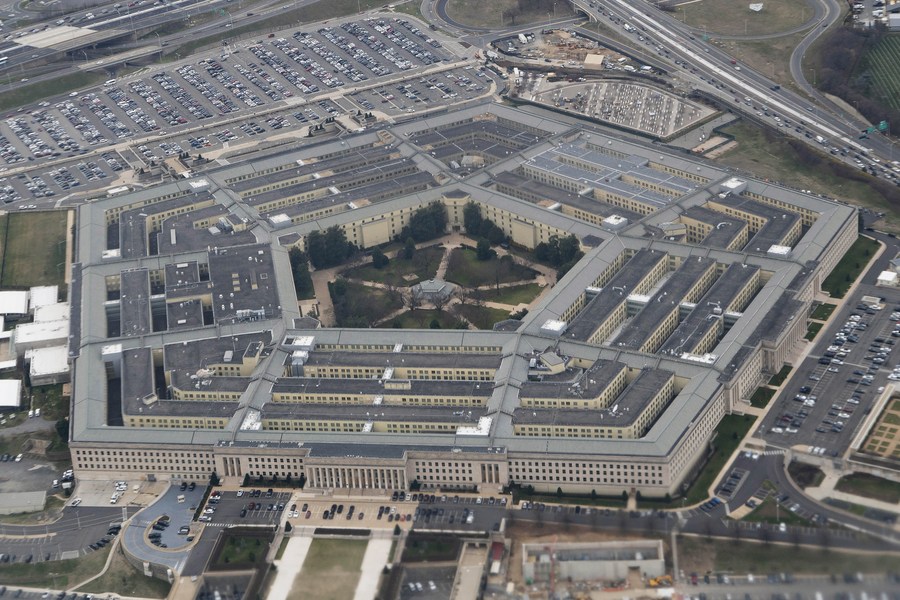
Photo taken on Feb 19, 2020 shows the Pentagon seen from an airplane over Washington D.C., the United States. [Photo/Xinhua]
This is an editorial from China Daily.
As part of the government spending plan that US President Joe Biden unveiled on Thursday, the United States' defense budget for fiscal 2024 will be increased by $26 billion, a 3.2 percent increase on the 2023 enacted level that allocated nearly $817 billion to the Pentagon.
The US now accounts for 40 percent of the world total defense expenditure, yet it has been ringing alarm bells at the defense budget that China has just unveiled for 2023, which, if calculated in US dollars, would only amount to one-fourth that of the US.
China spends less than 1.5 percent of its GDP on its military, the US spends more than double that. The US' military expenditure is about 3.5 percent of its GDP. And let's not forget that the military spending of the US is also augmented by that of its allies. The armed forces of its allies serve as appendages of the US military and their defense spending essentially serves Washington's schemes. As highlighted by the European members of NATO who have been chipping in with military hardware and other resources to support the US' proxy conflict with Russia in Ukraine.
Part of the proposed budget for Pentagon next year will go to Ukraine, indicating Washington's persistent efforts to fan the war of conflict there and turn the European country into a long-term venue for a proxy war and bloc confrontation. One year after the crisis broke out, the US has already emerged as the biggest winner of the war.
The Biden administration's proxy war has once again served as a massive shot in the arms of giant US defense companies and contractors as orders from the Pentagon have been kept pouring in since last year. The US has also successfully elbowed Russia out of the energy market in Europe, and grabbed a lucrative share for itself.
It is no exaggeration to say that while presenting itself as a peacemaker, the US is a growing threat to world peace and stability, as much of its military spending is directed to intervene in regional conflicts, with the remainder used to maintain its global military supremacy and pay for the zero-sum games in support of its hegemony. The highest military spending in peace time also ignites grave concerns that it will trigger an arms race worldwide and exacerbate geopolitical competition, and thus heighten the security risks of the entire world.
The US' military budget underscores the nature of the world's sole superpower as a warmonger. But history shows that military interventions only make things worse. The US should draw lessons from the wars it waged in Iraq and Afghanistan and try and cure its addiction to the use of force.

 中文
中文



